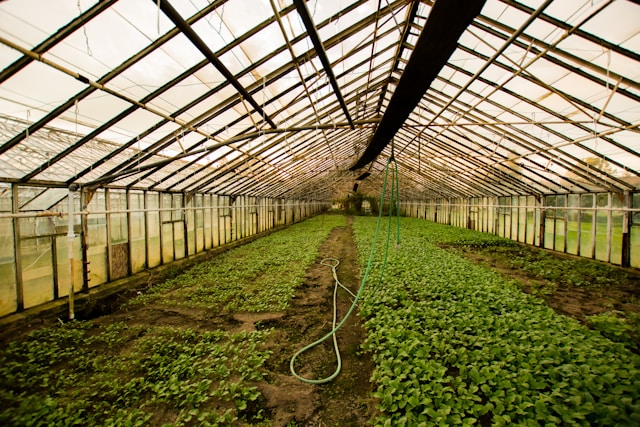The agricultural development fund’s substantial funding targets red meat, poultry, aquaculture, and greenhouse farming to strengthen Saudi food sustainability.
In a strategic move to enhance Saudi Arabia’s food security and agricultural output, the Agricultural Development Fund (ADF) has approved SR2 billion ($533.33 million) in loans and credit facilities. This investment, revealed after the ADF’s third board meeting on September 18, is expected to significantly bolster various agricultural sectors across the Kingdom.
Chaired by Minister of Environment, Water, and Agriculture, Abdulrahman Al-Fadhli, the meeting outlined critical areas that would benefit from this funding. Red meat and poultry production, greenhouse farming, fish aquaculture, and cold storage infrastructure are at the forefront of this initiative. These sectors will see the implementation of modern farming techniques and improvements in logistical capabilities, both crucial to Saudi Arabia’s goal of achieving agricultural sustainability in line with Vision 2030.
Embed from Getty ImagesDespite its predominantly arid desert environment, the Kingdom has been witnessing a notable agricultural revival in recent years. Efforts have been made to enhance domestic crop production, with self-sufficiency already achieved in key staples like dates, fresh dairy, and table eggs. This growing momentum is vital for Saudi Arabia’s broader goal of reducing reliance on imported food, which has historically been a vulnerability for the nation.
ADF’s CEO, Munir bin Fahd Al-Sahli, emphasized the importance of this initiative as part of a comprehensive food security strategy. He highlighted the role of collaboration with banks to finance working capital and support the importation of essential agricultural products. This approach is not only designed to address current supply chain needs but also to strengthen the Kingdom’s food reserves for future resilience.
The board’s meeting also involved reviewing reports on the performance of various agricultural projects that have been funded over the past five years. These projects have demonstrated significant progress in terms of operational effectiveness, production capacity, and alignment with funding goals. In particular, the ADF’s efforts have been aligned with the Kingdom’s objective to adopt sustainable agricultural practices.
Saudi Arabia has already made considerable strides in improving its agricultural sector. Mansour Al-Mushaiti, vice minister of the Ministry of Environment, Water, and Agriculture, remarked on this progress during a speech at the 43rd session of the UN Food and Agriculture Organization’s General Conference in 2023. He noted that in 2022, domestic agricultural production reached a historic high of SR100 billion. This achievement reflects the growing capacity of Saudi farms, particularly those utilizing modern, technology-driven farming methods.
By continuing to invest heavily in its agricultural sector, Saudi Arabia aims to further solidify its food security strategy and play a more prominent role in the global agricultural economy.
Analysis:
Saudi Arabia’s recent approval of $533 million in loans and credit facilities for agricultural development represents a strategic pivot towards securing the nation’s food supply, especially as global food systems face growing uncertainty. The initiative is deeply tied to Vision 2030, a plan aimed at diversifying the Saudi economy away from oil dependence, with agriculture playing a critical role in this transformation.
From an economic perspective, this move reflects the increasing investment in non-oil sectors to drive sustainability and create new revenue streams. Agriculture, although a relatively small portion of the Saudi economy, is expanding rapidly. The development of greenhouse farming, aquaculture, and cold storage facilities, alongside traditional livestock sectors, demonstrates an intentional push towards higher agricultural yields using advanced technologies. The initiative will also likely lead to job creation, especially in rural areas, and foster greater stability within domestic food markets.
On a social level, the initiative could contribute to rural development, enhancing the livelihood of Saudi farmers and workers in related industries. By improving local food production capabilities, the government may also foster a deeper connection between urban and rural populations, narrowing social disparities. However, the implementation of modern farming techniques might require substantial reskilling programs to ensure local workers can operate advanced agricultural technologies.
From a political angle, the ADF’s substantial funding signals the government’s prioritization of food security as a national issue. In a region often characterized by water scarcity and limited arable land, Saudi Arabia’s ability to move toward self-sufficiency in food production strengthens its geopolitical stance. By reducing dependency on food imports, the Kingdom ensures greater political stability, especially in times of global crises that disrupt food supply chains.In terms of environmental considerations, Saudi Arabia’s agricultural expansion raises questions about water management. The desert nation has invested heavily in technology to manage scarce water resources, but the sustainability of large-scale farming in such an arid environment remains a challenge. Innovations such as hydroponics and aquaponics, which use significantly less water than traditional farming methods, will be critical to minimizing the environmental footprint of these new agricultural developments.
